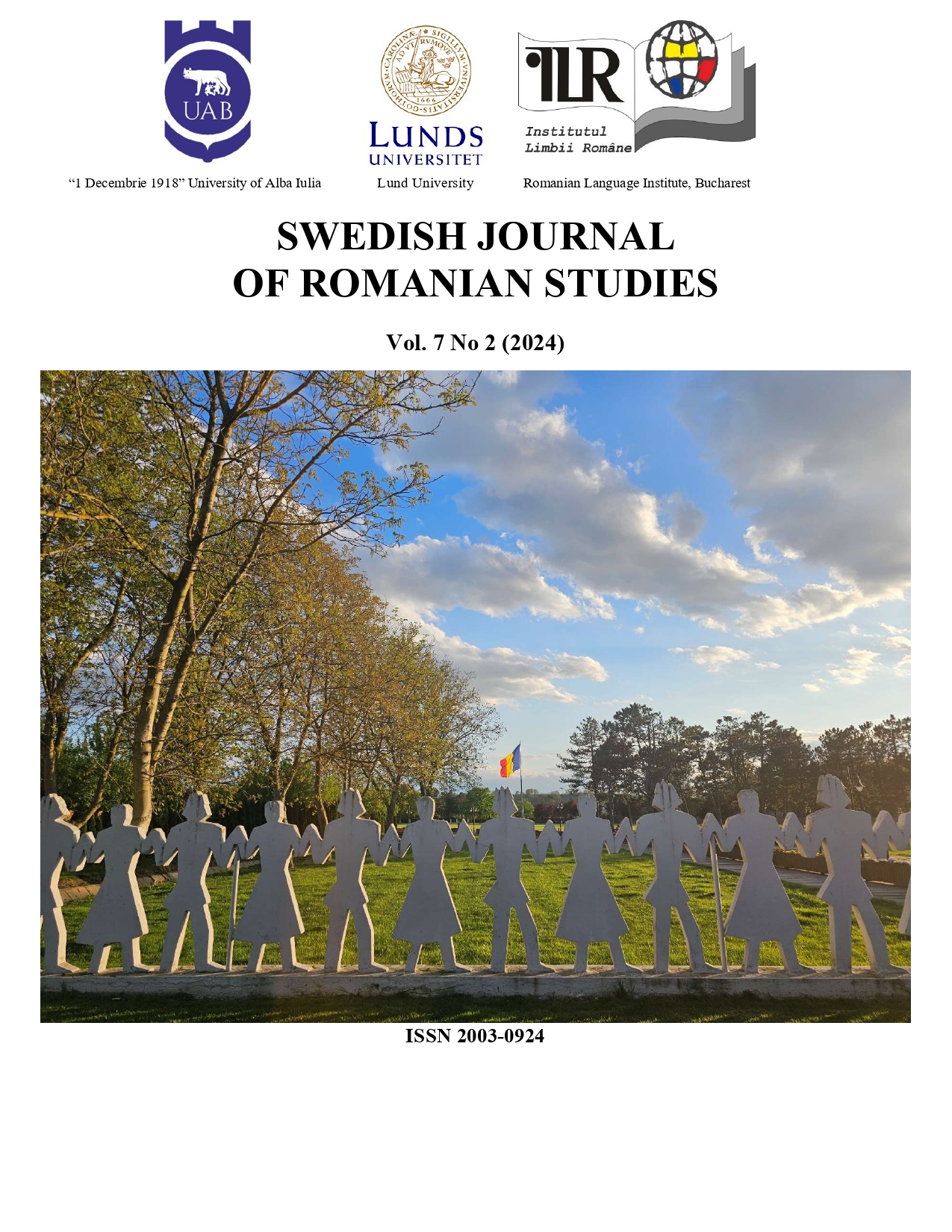Ființele ficționale: ce sunt și la ce folosesc
Fictional beings: What they are and what they are for
DOI:
https://doi.org/10.35824/sjrs.v7i2.25958Keywords:
fictional entity, fictional realism / antirealism, make-believe , (fictional) truthAbstract
My paper problematizes the (non)existence of the fictional beings, addressing a series of important theoretical questions and comparing some relevant (realist / antirealist) answers archived by the modern and contemporary conceptual history. I have examined contrastive philosophical perspectives that define the ontological condition of fictional beings, in an attempt to represent the specific difference of these imaginative constructs and their experiential roles. The argumentative stake of my concise research is to prove that, in the coordinates of the imaginative worlds, fictional beings, their behavior, language, emotions, intentions, help us „read” and interpret real life - they are cognitive tools of exceptional value.
References
Cassin, B. (coord.) (2021). Vocabularul european al filosofiilor [European vocabulary of philosophies]. Iași: Polirom.
Currie, G. (1990). The nature of fiction. Cambridge: Cambridge University Press.
Iser, W. (1993). The fictive and the imaginary: Charting literary anthropology. Baltimore/ London: The Johns Hopkins University Press.
Lewis, D. (1973). Counterfactuals. Oxford: Basil Blackwell.
Lewis, D. (1986). On the plurality of worlds. Oxford: Basil Blackwell.
Livingston, P. (1991). Literature and rationality: Ideas of agency in theory and fiction. New York: Cambridge University Press.
Llosa, M.V. (2013). Orgia perpetuă: Flaubert și doamna Bovary [The perpetual orgy: Flaubert and Madame Bovary]. București: Humanitas.
Meinong, A. (1910 /1983). On assumptions. Berkeley: University of California Press.
Parsons, T. (1980). Nonexistent objects. New Haven: Yale University Press.
Plantinga, A.(1979). The nature of necessity. Oxford: Clarendon Press.
Sainsbury, R.M. (2010). Fiction and fictionalism. London/ New York: Routledge.
Schaeffer, J.M. (2021). Experiența estetică [The aesthetic experience]. București: Tracus Arte.
Thomasson, A. (1999). Fiction and metaphysics. Cambridge: Cambridge University Press.
Vaihinger, H. (1924/1935). The philosophy of “As If”: A system of the theoretical, practical and religious fictions of mankind. New York: Harcourt, Brace & Co.
Walton, K. (1990). Mimesis as make-believe: On the foundations of the representational arts. Cambridge, Mass.: Harvard University Press.
Zalta, E.N. (1983). Abstract objects: An introduction to axiomatic metaphysics. Dordrecht: Reidel.
Downloads
Published
How to Cite
Issue
Section
License
Copyright (c) 2024 Alina Buzatu

This work is licensed under a Creative Commons Attribution-NonCommercial 4.0 International License.
Authors who publish with this journal agree to the following terms:
a. Authors retain copyright and grant the journal right of first publication with the work simultaneously licensed under a Creative Commons Attribution-NonCommercial 4.0 International License that allows others to share the work with an acknowledgement of the work's authorship and initial publication in this journal.
b. Authors are able to enter into separate, additional contractual arrangements for the non-exclusive distribution of the journal's published version of the work (e.g., post it to an institutional repository or publish it in a book), with an acknowledgement of its initial publication in this journal.
c. Authors are permitted and encouraged to post their work online (e.g., in institutional repositories or on their website) prior to and during the submission process, as it can lead to productive exchanges, as well as earlier and greater citation of published work (See The Effect of Open Access).

